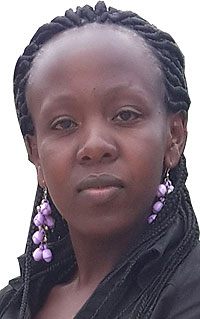Our parents and teachers have always told us to read in order to pass exams. Some cynics have also alleged that the only way of hiding something from Africans is by hiding it in a book. This ‘song’ about reading books keeps being mentioned to the dismay of many people.


Our parents and teachers have always told us to read in order to pass exams. Some cynics have also alleged that the only way of hiding something from Africans is by hiding it in a book. This ‘song’ about reading books keeps being mentioned to the dismay of many people.
And it is not because it’s a wrong message or that people don’t know the importance of reading. In fact majority of people agree with Nora Ephron when she says: "Reading is everything. Reading makes me feel like I’ve accomplished something, learned something, become a better person. Reading makes me smarter. Reading gives me something to talk about later on.”
So why don’t many people read even when they know its value? It is partly because the message is incomplete. How do you tell your child to become wealthy without giving him tips on how to achieve that wish/dream? Today, I will share with you some ideas on how to read a book from the first page to the last.
One of the key ingredients to reading (especially for new readers) is looking out for an area you are passionate about. Is it fiction, romance, comedy, adventure or business? Start with that. As Vincent can Gogh said, you would rather die of passion than of boredom. It is more natural to read about what you enjoy than an area that you have never even dreamed about.
Some readers dislike Wole Soyinka‘s works because he uses ‘hard language’. Interestingly, this great author from Nigeria is aware of that and has no plans of changing his style. Asked who he writes for, Soyinka once said: "I write for those who are at the same wavelength with me.” Of course Soyinka has a big following worldwide that loves his style of writing. However, you can choose a book with ‘simpler language’, language that you can easily comprehend. This will go a long way in helping you to understand the book and save you the headache of straining your brain and opening the dictionary countless times. You should also not worry much about words or phrases you might not understand in the book. Usually as you continue to read, you will get the meaning after appreciating the context.
One excuse a number of people give for not reading is that they have no time. But as Confucius said: "No matter how busy you may think you are, you must find time for reading, or surrender yourself to self-chosen ignorance.” Going to school is not enough. One must continue to accumulate as much information as possible because knowledge is power. And you know what? You don’t need a day or half-day to ‘feed’ your brain. You can even choose to read for only fifteen minutes everyday or thrice a week. The only trick is that you should do it at a time of the day when you have few disruptions. After a period of three months or a year, a self-appraisal will leave you smiling. With consistence, you will fall in love with books and your intellectual ability will shoot up all for the better.
The ways of becoming a great reader are many, and I could go on and on. But as teachers emphasise, it is better to keep it simple and short to drive the point home. Try out these few tricks and you will never part with books.
The writer is a publisher




